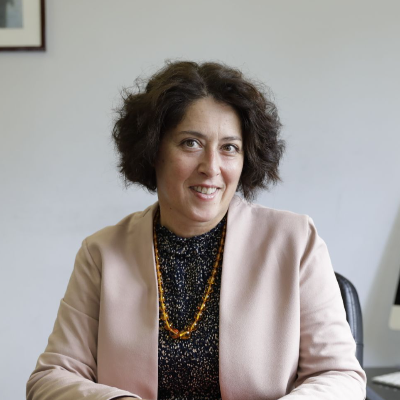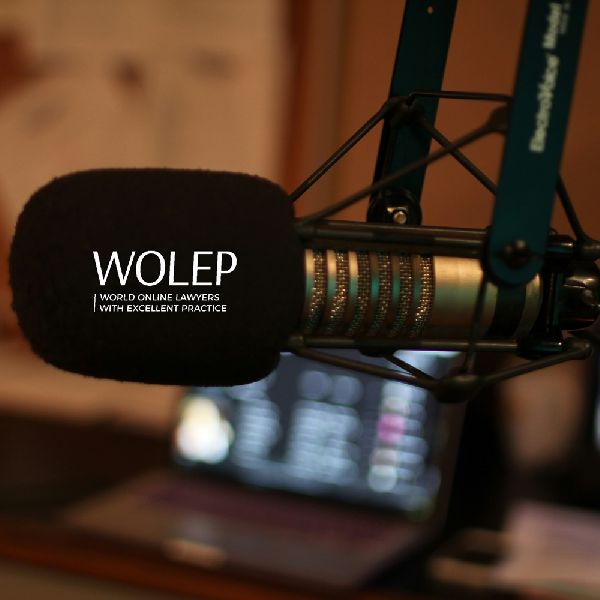
|
26.09.2023 | Teodor BURNAR
|




|
Ms. Caterina Caput (WOLEP member, Rome, Italy): „I look forward to collaborating with WOLEP colleagues on my Italian citizenship recognition project”
WOLEP: Please introduce yourself to the WOLEP community.
Caterina Caput: I have been practicing as a lawyer since the early 2000s, primarily in Rome. However, with the advent of the Internet, I have been able to extend my services to clients worldwide. In addition to providing legal assistance throughout Italy, I have also expanded my expertise to regions such as South America, Central America, and North America.
Within Italy, my main areas of specialization are labour law and real estate law. Additionally, I have developed a niche in assisting individuals in the recognition of their Italian citizenship, particularly for the descendants of Italian immigrants who left the country in the early 20th century. This branch of my practice emerged unexpectedly when my father, who is also a lawyer, asked me to handle the citizenship recognition process for a friend of his. Since then, I have received numerous referrals from my first client's acquaintances and their families.
To sum up, my professional journey has allowed me to serve clients both locally and internationally, providing expertise in labor law, real estate law, and the recognition of Italian citizenship for descendants of Italian immigrants.
WOLEP: Sounds like a very fine start. Could you please provide an overview of your project regarding the recognition of Italian citizenship for descendants of Italian emigrants?
Caterina Caput: I closely monitor the progress of this particular branch of my practice. Prior to joining WOLEP, I had the good fortune of connecting with a client, who has now become a friend, residing in Colombia. They assist me by keeping an eye out for groups of individuals seeking recognition of Italian citizenship. Additionally, I have established a partnership with a service agency based in Ecuador. This agency undertakes the preparation of all the necessary documentation, subsequently sending both the files and clients to me. When I joined WOLEP, it became evident that I could further expand this branch by collaborating with fellow colleagues within the network.
To that end, with the assistance of Adelina Zapis, Head of Network Development at WOLEP, I approached colleagues in South America (specifically Brazil, Argentina), one in the USA, and another one in Mexico. I proposed a collective agreement wherein we would jointly manage their clients.
The premise of my WOLEP Italian citizenship project is as follows: The colleague, being within the local territory, has a greater opportunity to approach clients who may have an Italian surname and inquire if they are interested in obtaining Italian citizenship. This approach simplifies the process of finding clients compared to my own efforts. If the clients express their agreement, we can proceed with the preparation of the necessary documentation, during which I provide guidance and instructions to both the clients and collaborating colleagues regarding the specific documents required for the process.
In my scenario, the WOLEP colleague is in the local territory, so he or she has the possibility to ask their Clients that have an Italian surname, if they want to obtain the Italian citizenship
In my strategic approach, the colleague takes charge of the research and construction of the documentation. This means that they handle the initial phase of obtaining the required certificates, which are requested directly from the client to the public administration office. The colleague is responsible for overseeing this process and ensuring that the obtained documents are accurate and complete. Once this step is accomplished, I can proceed with drafting the necessary legal documents and commence the subsequent stages of the process.
I hope this WOLEP Talk can also make colleagues more receptive to my project.
WOLEP: As a specialist in Immigration and Asylum, how does your expertise in Civil Rights complement your work on the Italian citizenship recognition project? How do these areas of specialization contribute to providing comprehensive services to your Clients?
Caterina Caput: Primarily, my expertise within the realm of civil rights deals with discrimination. I provide assistance to individuals who face discriminatory treatment based on factors such as nationality, age, or sexual orientation. For instance, individuals with Italian citizenship by descent often exhibit physical characteristics that differ from the typical European phenotype. Consequently, they may find themselves subjected to discriminatory practices. In such situations, I offer my expertise and support to help them address and overcome these challenges.
A good place where I can find Clients for my Italian citizenship recognition project is the sports sector. I hope the colleagues from the WOLEP Sports Law Practice read this and we touch base
However, it is important to note that my specialization in immigration law is rather limited. I have ceased to provide extensive services in this area due to economic considerations. Previously, I was involved in assisting individuals who arrived in Italy from countries like Egypt or Tunisia without the appropriate permits by aiding them in obtaining stay permits. However, the efforts required to achieve favorable outcomes in these cases far outweighed the financial gains. As a result, I made the decision to focus exclusively on the field of Italian citizenship recognition, where I can better allocate my time and resources.
WOLEP: Which countries have a larger population of Italian immigrants that typically contribute significantly to your particular legal project?
Moreover, in addition to the mentioned countries, what are the benefits that clients gain when applying for Italian citizenship? What factors motivate them to pursue this legal process?
Caterina Caput: The countries primarily involved in this legal project are Argentina, Brazil, Venezuela, Colombia, Ecuador and the USA, where Italians have immigrated beginning with the 20th century. In the USA, as well, there are Argentinian people, Brazilian people, Colombian people that emigrated there, perpetuating the bloodline. The advantage for Argentinians and Brazilians pursuing Italian citizenship stems from the unfavourable economic conditions in their home countries. This poses challenges for them in obtaining euros to fulfill financial obligations. To address this, I have established an online platform where they can purchase euros using a credit card, similar to Amazon. The deteriorating economic situation prompts their desire to migrate to Europe, beyond just Italy, and acquiring Italian citizenship facilitates their relocation within Europe.
Often, the decision to pursue Italian citizenship is made by parents on behalf of their children, aiming to provide them with improved prospects for the future. As an example, I recently assisted a young woman who tragically lost both her parents due to Covid-19. With no remaining family in Argentina and being married, she and her spouse decided to commence a new chapter in Italy by obtaining recognition of Italian citizenship.
WOLEP: Congratulations for helping this client! Moving on, what kind of approaches do you employ in order to obtain and to make sure that the documents that you receive are the the proper ones?
Caterina Caput: Typically, I get involved once the clients have already obtained their certificates and necessary documents. This is because they are usually aware of the specific documents they require. They often conduct research online, seek advice from various Internet groups, such as Facebook groups, and engage in similar activities to acquire the necessary information.
However, if they require assistance, I guide them on the specific types of certificates, translations, and apostilles that are needed. In addition, if they wish, I have collaborators both in Italy and in Ecuador, Brazil and Colombia who can assist with the process of reconstructing the required documentation. Because they have to reconstruct all the family history: since the avo (“avo dante causa”, i.e. an Italian-born ancestor – WOLEP editor’s note) emigrated, right to the client. This comprises tracing the entire family history from the time of their Italian-born ancestor until the present client, including details on births, marriages, and deaths of each family member. The purpose is to demonstrate that the lineage for Italian citizenship has remained unbroken.
If the clients opt for this additional support, I assist them accordingly, and charge an extra fee due to the extensive work involved. It requires frequent communication, numerous Zoom meetings, and substantial explanations. All in all, this aspect of my work is more demanding than solely drafting the necessary legal act and preparing the case.
The Clients have to reconstruct all the family history – I can help them, but I have to demonstrate that the Italian citizenship line has not been interrupted. It is hard work
WOLEP: It also sounds like detective work, in order to reconstruct the identity of the client.
Caterina Caput: Of course, but now on the Internet you can find a lot of original documents. And also sometimes, I have to write to the Italian Comune where the avos were born, that are in various places. And sometimes I have to ask a company, because the Comune doesn't answer me.
To be continued – End of Part I
Are you a legal eagle with a passion for collaboration? Join forces with other legal professionals and elevate your practice to the next level. Don't wait, sign up now to WOLEP and connect with like-minded lawyers today. Register your account here.
#Na wyłączność #Caterina Caput #Italy #Italian citizenship recognition #Italian ancestry #law in Italy




